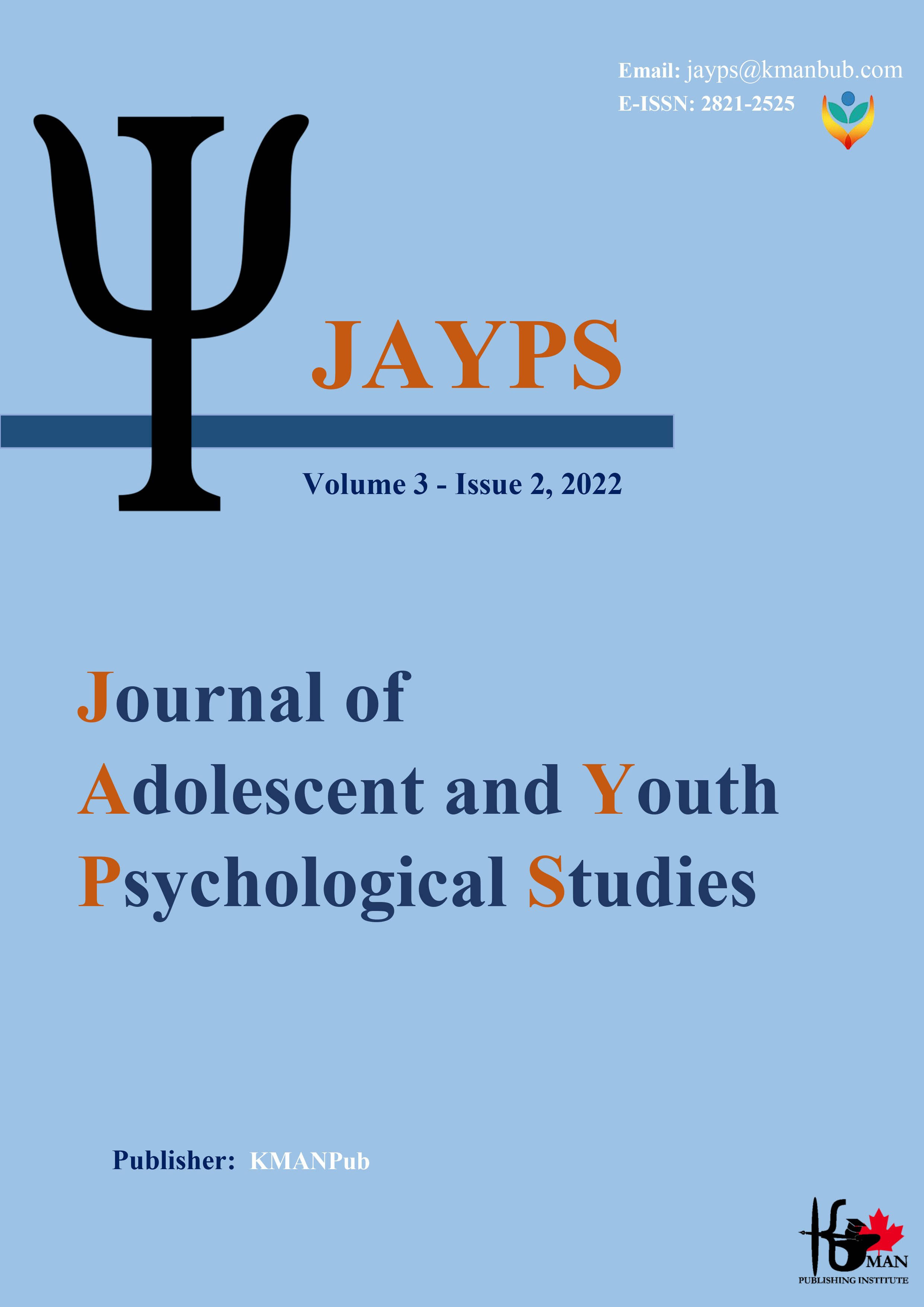Comparing the effectiveness of Interventions of Academic Engagement and Dweck’s MindSet on health-oriented academic lifestyle among high school students
Keywords:
health-oriented academic lifestyle, academic engagement training, Dweck’s mindsetAbstract
Background and Aim: Adolescence represents a critical period of rapid physical, social, cognitive, and emotional change that has important implications for health and well-being later in life The aim of this study was to comparing the effectiveness of interventions of academic engagement and Dweck’s mindset on health-oriented academic lifestyle among high school students. Methods: This research was a quasi-experimental study with a pretest-posttest-follow-up design and a control group. The statistical population of the study included all female high school students in Mahabad in the academic year 2021-2022. The statistical sample consisted of 45 students who were selected by stage cluster sampling and randomly replaced in two experimental groups and one control group. Research data were collected through Promoting and Preventing Educational Health Academic Lifestyle Behaviors Questionnaire (Salehzadeh, Shukri and Fathabadi, 2016). For the experimental groups, the study engagement interventions (Reeve and Tsenning, 2011) was performed in 12 sessions of 75 minutes and the Dweck’s mindset program (Dweck, 2006) was performed in 8 sessions of 50 minutes, and the control group did not receive any intervention. Analysis of variance with repeated measures in SPSS version 26 was used to analyze the data. Results: Data analysis showed that both academic engagement interventions and Dweck’s mindset in the post-test stage were effective in improving health-promoting behaviors (F=29.16, P=0.0001, 2=0.587) and reducing health inhibitory behaviors (F=23.26, P=0.0001, 2=0.532), but academic engagement idnterventions was more effective and effective in the follow-up stage was stable for one month. Conclusion: According to the findings, it can be argued that academic engagement interventions and Dweck’s mindset are effective interventions to improve health-oriented lifestyle in students.
Downloads
Downloads
Published
Submitted
Revised
Accepted
Issue
Section
License

This work is licensed under a Creative Commons Attribution-NonCommercial 4.0 International License.









